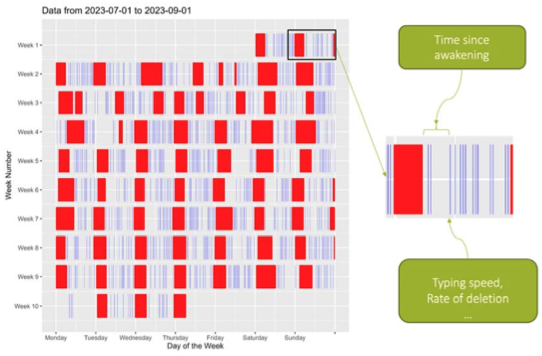Abstract
Mental fatigue undermines workplace safety and productivity. Early detection of subtle declines in objective alertness and cognitive performance in workers can enable timely interventions to prevent costly errors and safeguard employee health. However, conventional assessments often require controlled laboratory conditions and prolonged testing, limiting their real-world applicability. Here, we demonstrate an approach that utilizes smartphone keyboard metrics in everyday use to provide a more scalable, continuous, and ambulatory method for evaluating mental fatigue. We examined the adjusted association between novel yet widely available SensorKit typing performance metrics and wearable-derived time since waking from a most recent major sleep episode or napping among 366 first-year training physicians in the United States who generated 45,042 typing sessions over a two-month period. Typing performance, especially typing speed, has a significant non-linear adjusted relationship with time awake. At the population-level, typing speed increases and peaks around 7.5 hours since awake and has a substantial decrease around 15.3 hours of time awake, highly consistent with classical lab-based active task Psychomotor Vigilance Test findings that showed increased response lapses beyond 15.8 hours of wake period. Our findings are relevant for developing a ubiquitous and unobtrusive tool to assess, monitor, and manage mental fatigue on a continuous basis in everyday life, especially for populations in high-risk and high-stake settings.
